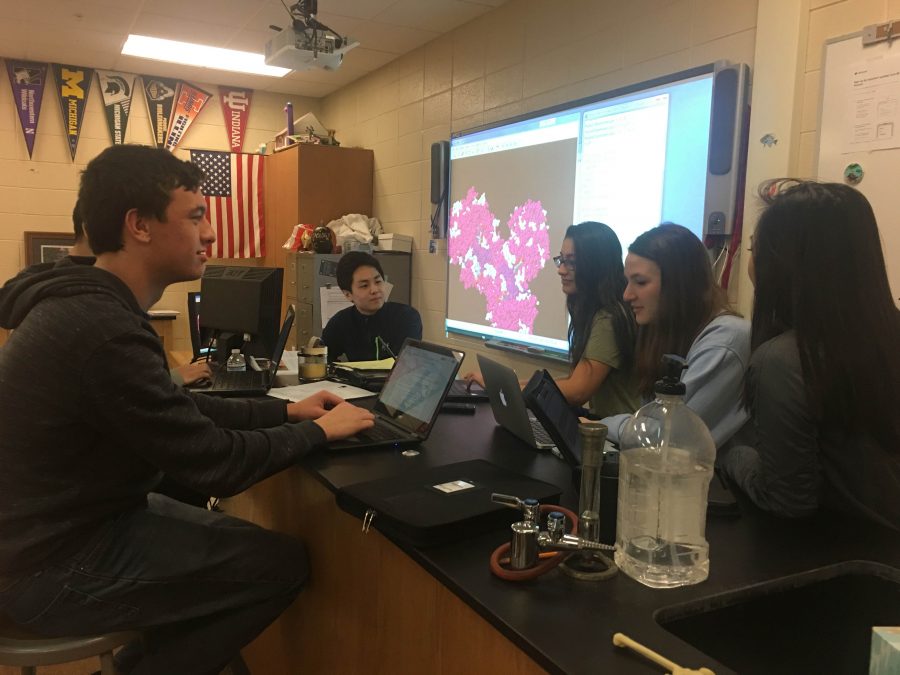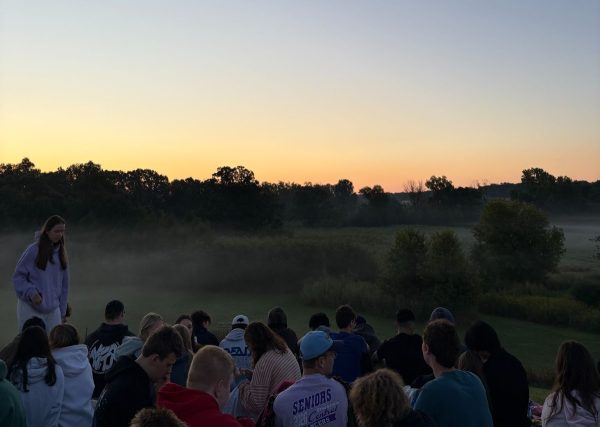MAPS prepares for presentation
From left to right: Benjamin Tan (‘19), Eugene Kim (‘17), Leslie Bonilla (‘17), Madison Hummel (‘17), Alice Zheng (‘17). The team is shown discussing the structure of their model of methemoglobin.
The saying “quality is better than quantity” certainly applies to one of Central’s many exceptional clubs: the MAPS Team. Members conduct research on a specific protein and subsequently present their findings in the Milwaukee School of Engineering (MSOE) at the end of the year.
Even though there are only a mere handful of members in the club, they are doing research that is of considerable importance. “At the beginning of the year, MSOE gave us a model for a protein type that they want us to research throughout the year. The topic this year is globins. We specifically chose to do methemoglobin, which is a mutated form that can accumulate in some people and cause serious problems, most notably turning skin blue,” said Eugene Kim (’17), president of the club. For those who are not aware, globins are proteins that participate in transporting oxygen. Methemoglobin is a form of globin that does not carry oxygen, so a color change occurs due to a lack of oxygen.
In order to get the research needed, the club is provided some sources and an online interface that creates a model of the protein. “MSOE gives the background knowledge that we need to understand what’s going on, and then we expand on that with the model,” fellow member Madison Hummel (‘17) said. It is obvious that this is a topic that requires extensive research rather than just winging it.
All of this information might seem a bit overwhelming for most people, but in reality, there really are no prerequisites for joining the team. All members of the group unanimously agreed that there are no qualifications needed, but teammate Leslie Bonilla (‘17) emphasizes that it is necessary to be persistent and have an open mind: “If you feel like proteins aren’t interesting to you then this club is not necessarily the best fit, and you also need to be interested in science.” Ben Tan (‘19) supported Bonilla by adding, “…you also need to want to have fun.”
Not only does the team have fun, but their relationship is also quite close-knit and admirable. “We all bond really well, and we’re all good friends even though this is a club where research is our main focus,” Tan said. “[it’s a] good mix of work and play,” Bonilla said.
The MAPS Team has gained many benefits from participating regularly in the club. Since it revolves around science and research, the members of the team agreed that the activities in the club prepared them for success in their science classes as well as general inquiries. Kim mentions that the concept of proteins has helped with AP Biology, specifically in regards to biochemistry. Hummel extends this by emphasizing specific units: “Some people struggled with Unit 2 of AP Bio, but through the team, I knew what was going on and it was a breeze.”
MAPS meets every Tuesday after school. If you are interested for the upcoming year contact Mr. Demos for more details!





